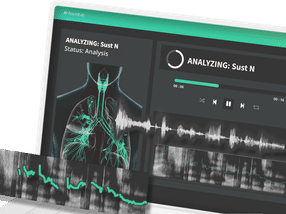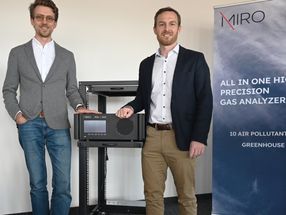bioLytical develops 60-second Ebola testing kit
bioLytical Laboratories has successfully developed a pre-clinical prototype diagnostic test for the rapid detection of antibodies to the Ebola Zaire strain responsible for the current outbreak in West Africa. The prototype is based upon the Company's proven, accurate, and highly accepted INSTI rapid test platform, which is capable of providing results in as little as 60 seconds.
"We are very excited about what our research and development team has been able to accomplish in such a short period of time," says bioLytical's Chief Executive Officer Dr. Christopher Shackleton. "There is clearly a pressing need for a diagnostic test that can rapidly and accurately detect the presence of this potentially deadly infection as early as possible and in diverse testing environments. We also believe that the speed of our INSTI platform will offer considerable advantages as compared to slower point-of-care assays when it comes to the screening of large numbers of subjects in the field as well as in those settings where time is a significant constraint such as travel points of entry."
Most read news
Organizations
Other news from the department research and development

Get the analytics and lab tech industry in your inbox
By submitting this form you agree that LUMITOS AG will send you the newsletter(s) selected above by email. Your data will not be passed on to third parties. Your data will be stored and processed in accordance with our data protection regulations. LUMITOS may contact you by email for the purpose of advertising or market and opinion surveys. You can revoke your consent at any time without giving reasons to LUMITOS AG, Ernst-Augustin-Str. 2, 12489 Berlin, Germany or by e-mail at revoke@lumitos.com with effect for the future. In addition, each email contains a link to unsubscribe from the corresponding newsletter.
Most read news
More news from our other portals
See the theme worlds for related content
Topic world Diagnostics
Diagnostics is at the heart of modern medicine and forms a crucial interface between research and patient care in the biotech and pharmaceutical industries. It not only enables early detection and monitoring of disease, but also plays a central role in individualized medicine by enabling targeted therapies based on an individual's genetic and molecular signature.

Topic world Diagnostics
Diagnostics is at the heart of modern medicine and forms a crucial interface between research and patient care in the biotech and pharmaceutical industries. It not only enables early detection and monitoring of disease, but also plays a central role in individualized medicine by enabling targeted therapies based on an individual's genetic and molecular signature.






























































